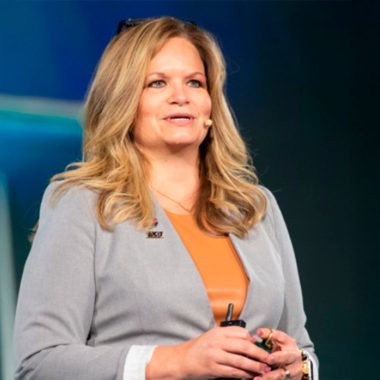Cost control often gets a bad rap. To many, it sounds like a zero-sum game featuring budget cuts, either-or choices, job losses, and scarcity. But for John Joseph Carpenter, a National Practice Partner with era Group—it’s something else entirely. John explains that strategic cost decisions, thoughtfully made, compound over time like interest, making even small choices infinitely important for long-term success.
Navigating Career Shifts with Purpose
John’s path to strategic cost advisor wasn’t traditional. “I graduated from college with a computer science degree back when it wasn’t that common,” he recalls. After five years in IT, a chance encounter with aviation changed everything. At the time I wasn’t enjoying my job very much. The field wasn’t nearly as dynamic as it is today. “One day I was driving home from work when I saw an airplane fly low over the highway. I thought, where’s the airport around here?”
That moment led to a complete career shift into aviation. John earned an airline transport pilot’s license and went on to work as a corporate pilot for five years. Owing to the cyclical nature of the aviation industry though, John eventually returned to IT work. Back in tech, an article in his local newspaper triggered the next pivot: public service. John won election to his local governing body serving five terms over the next fifteen years. “I served three terms as mayor” John explains. Suddenly, his blend of technical skills and leadership instincts found new expression—budgeting with purpose.
Applying Compound Thinking to Costs
C.S. Lewis once said: “Good and evil both increase at compound interest. That is why the little decisions you and I make every day are of such infinite importance…” So it is with expenses. Both good and bad decisions compound. Save smartly? You build a better position year over year. Overpay on repeat? That mistake snowballs. “It’s not about one invoice,” John says. “It’s about how that invoice compounds—5% this year, 7% next. That drip becomes a flood.” “You can see the expense you incur in year zero will cost you much more in years three, four and five. If you let it.”
Three Strategic Approaches to Cost Control
John’s methodology focuses on three core strategies and rejects the “slash and burn” mentality often associated with cost reduction.
Be Open-Minded About Regular Bidding
“You have to put your business out to bid,” John emphasizes. “How much is that service worth? What’s the best price I can get? You won’t know the best price until you thoroughly and thoughtfully explore the market.” John often encounters businesses that haven’t reviewed expenses in years, missing significant savings opportunities.
Focus on Value, Not Just Cost
“Price is not the full measure of an expense – value is” he explains. “Take, for example, freight services. Value for freight can include, price, delivery speed, pickup reliability, timeliness and other factors. What comprises value varies from one expense category to another. Understanding what creates value helps make for better purchasing decisions.”
Build a Cost-Saving Culture
Rather than treating cost control as a one-time initiative, successful organizations weave it into their ongoing culture. “Reward people for the savings that they’re able to achieve. Make it something that you talk about. Make it part of people’s annual goals and objectives,” John suggests. Balancing AI with Human Insight Despite advances in artificial intelligence, John points out human judgment remains crucial. “AI is tremendous for doing a lot of routine tasks and mundane tasks,” he acknowledges, sharing how he recently used AI to analyze 75 PDF files against multiple criteria. “But AI doesn’t have a conscience, intuition, or judgement.”
In Conclusion
John’s collaborative approach sets him apart from traditional cost-cutting consultancies. “People think that because we’re in cost control, we wield a hatchet. But the fact is, the opposite is true,” he clarifies. We value our clients, their incumbent vendors and we respect those relationships. “As a matter of fact, about 75% of the time, our clients actually stay with their vendors, but at a better price that we were able to secure for them!” John’s philosophy proves that strategic cost control isn’t about scarcity or sacrifice. It’s about making thoughtful decisions that compound positively over time, creating more resources for growth while maintaining valuable business relationships.
Follow John Joseph Carpenter on LinkedIn to learn how small financial decisions can create long-term business impact.








